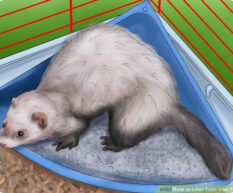Ferret News
Yellow Ferret: Why Do They Turn Yellow?
By Jazmin Murphy
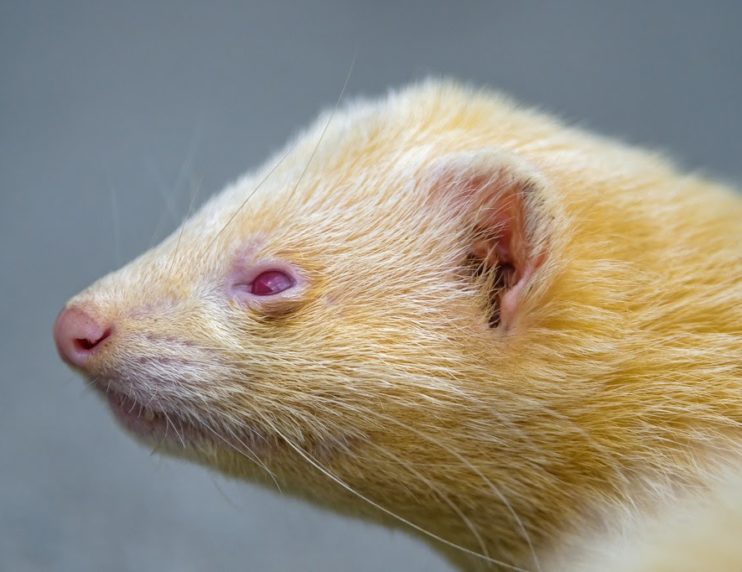
If you’re the owner of a white ferret, chances are you’ll notice it gaining a yellow tinge at least once in its life. This is nothing to worry about and is a direct consequence of its natural oil production. Here are a few of the most common reasons why your ferret’s coat might be turning yellow.
3 Reasons Why White Ferrets Turn Yellow
A white ferret might turn yellow for a wide range of reasons. Many of these causes are directly related to hormone imbalances that ferret’s of any sex or age might experience. Thus, they’re not anything significant to worry about. Just give your little buddy a bit of TLC and careful grooming, and it’ll be just fine.
On the other hand, the reason for your ferret’s yellowish tinge might be related to a sickness affecting its adrenal gland. Here’s a closer look at what might be causing your ferret’s peculiar appearance.
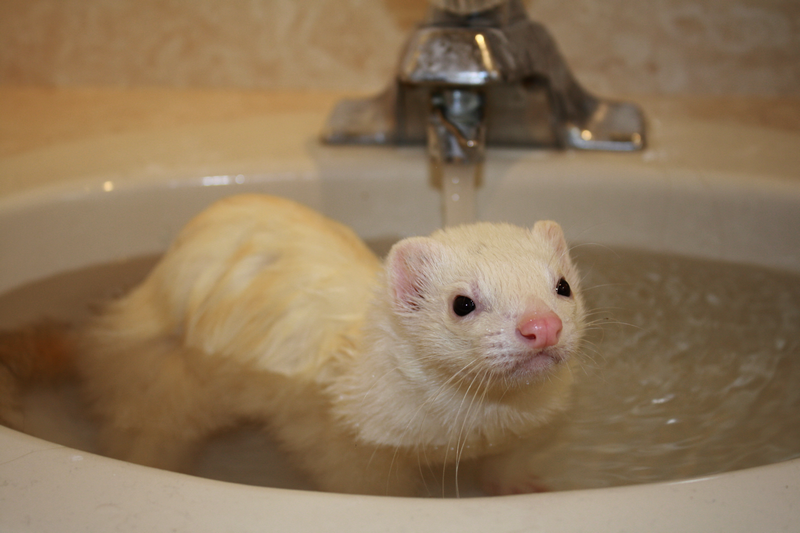
1. Hyperactive Oil Glands
Overactivity in the oil glands is by far the most common reason why a ferret might turn yellow. This is a natural occurrence that can happen to any ferret, regardless of its health or age.
A ferret’s sebaceous glands produce a liquid substance that can be either thin or thick, and in both cases, yellow in coloration. These glands are present all over the body, including the anus, so your ferret’s entire body can turn yellow when it’s producing too much oil.
As the oil collects on the ferret’s skin, it “stains” its white fur, in a sense, effectively tinting the ferret’s whole body. Some of the most likely explanations for why your ferret’s sebaceous glands are going into overdrive include:
- Seasonal shifts: Oils are mammals’ natural method of cooling down the body and protecting the skin from the harsh environment. During seasonal shifts, especially moving into warmer weather, you might notice that your white ferret’s coat is yellowing.
- Overbathing: Oil is also critical in waterproofing the skin. If you’ve been bathing your ferret too often, its physiological response is to replenish the loss of natural oils since the shampoos have stripped it all away.
- Dietary changes: Switching up your ferret’s diet can also cause imbalances in their hormones, which can ultimately lead to unusually high oil production levels. High-fat diets affect the liver, leading to sebaceous gland imbalances.
Before you get too concerned about your now-yellow ferret, think back on any changes you may have recently made to your care routine. Have you given your ferret an extra bath lately, or did you just start your ferret on a new food? If so, these are the most probable causes of your ferret’s yellowing.
In these cases, you just need to adapt your grooming and feeding strategy to allow your ferret to reestablish its physiological balance.
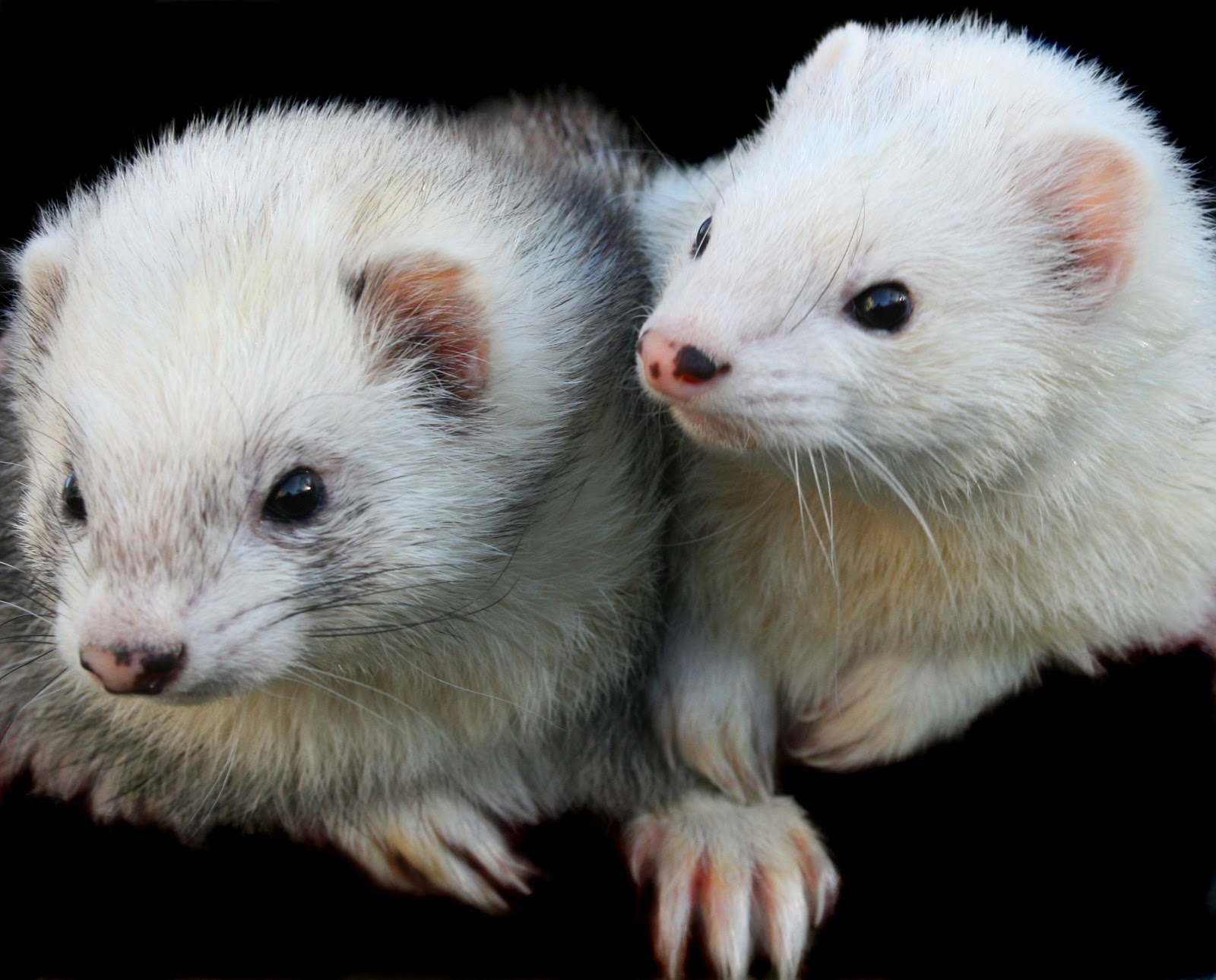
2. Yellow Fur Due to Mating Season
If your ferret is not de-sexed, its oil glands can become excessively stimulated due to a dramatic shift in its internal hormonal balance. This is the case for both males and females, so it’s crucial that you have your ferret de-sexed no matter what.
Still, what exactly does this have to do with yellowing? As mentioned previously, the oil your ferret’s glands excrete has a yellow tint. Unfortunately, this same oil is responsible for its musky odor, which plays a critical role in ferret mating.
If your ferret is not de-sexed, this is just one of the many reasons to take it to the vet for that procedure straight away. Additionally, for females, neglecting to de-sex your ferret can lead to potentially fatal complications, including:
- Anemia
- Blood clotting disorders
- Bone marrow suppression
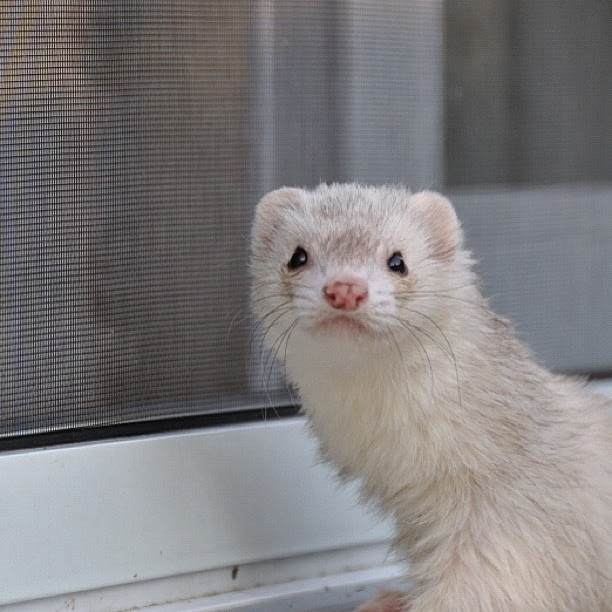
3. Yellow Fur Due to Adrenal Disease
Adrenal disease is more likely to affect older ferrets, specifically those between 3-7 years old. This is closely related to the cause of yellowing listed above, sexual maturity. Ferrets that are in season experience a peak in the production of their sex hormones, which leads to an increase in the adrenal gland’s size.
If this process goes too far, it can cause a condition known as “hyperplasia,” meaning the adrenal gland is dangerously large and is at risk of throwing off the ferret’s typical hormone concentrations.
Truthfully, yellow fur is one of the least common symptoms that can arise from adrenal disease. The effect you’re most likely to observe is that your ferret loses all its hair entirely, among other primary signs, including:
- Dry, itchy skin
- Anemia
- Aggression (due to discomfort or pain)
- Urinary problems
Some ferret owners are understandably wary of getting their male ferrets desexed. Unfortunately, neutering has been linked to an increased risk of adrenal disease for males since the brain continues signaling the testicles to produce sex hormones without the ability to stop it, creating a “negative feedback loop.”
To help this, veterinarians offer chemical castration implants like Suprelorin ® or injections such as Lupron ® to keep desexed ferrets happy and healthy.
Note that these complications are possible for female ferrets, too. However, since females face greater health risks without desexing, these discussions tend to focus on males.
Summary
It’s fairly common for a white ferret to turn yellow due to natural oil production issues. The most common reasons include seasonal changes, overbathing, dietary issues, and physiological changes due to mating season. However, it could be a more severe problem like adrenal disease.
Observe all the signs that your ferret is displaying to determine whether the change requires a veterinary visit. If you’re uncertain, it’s best to consult a veterinarian anyway. Although yellowing isn’t typically something to get too concerned over, that’s the best way to ensure your ferret’s health.

